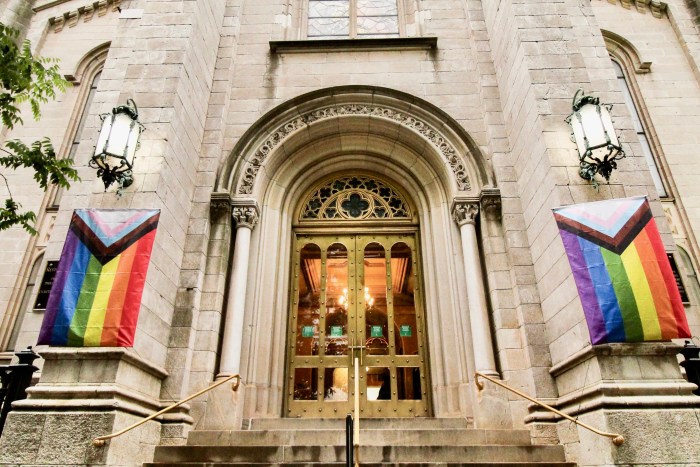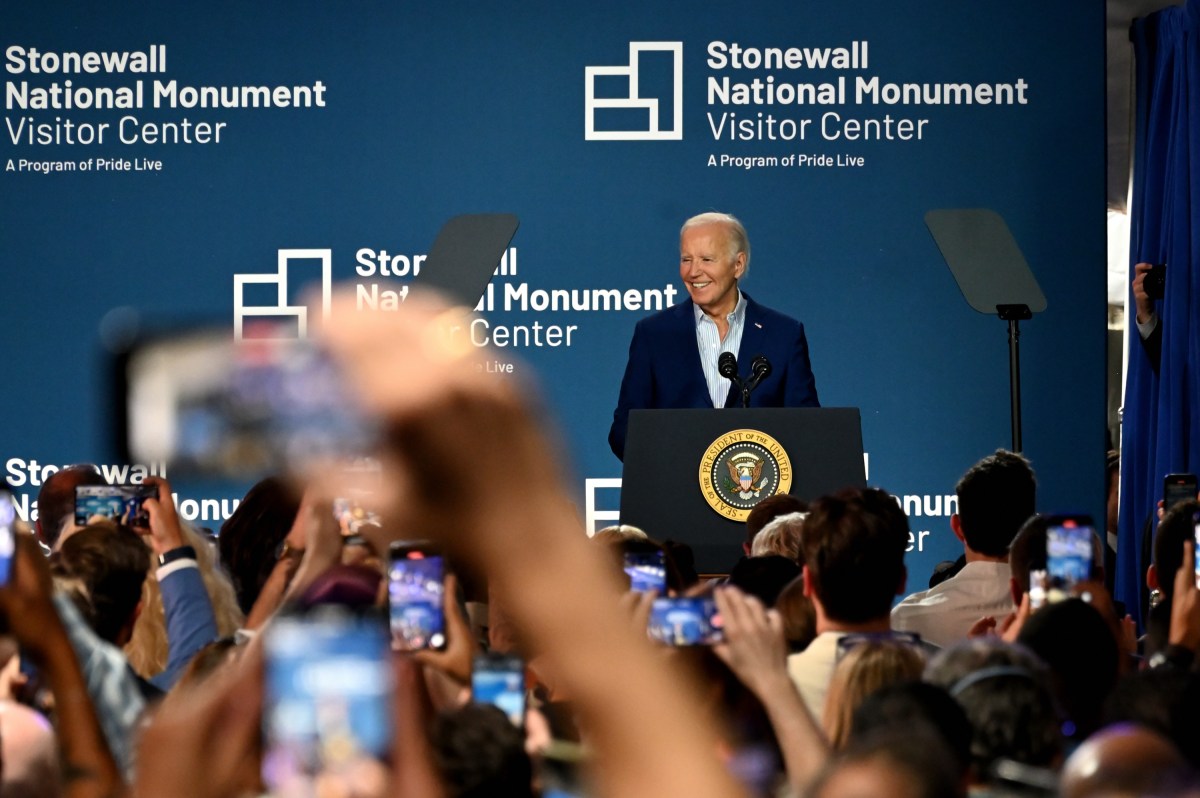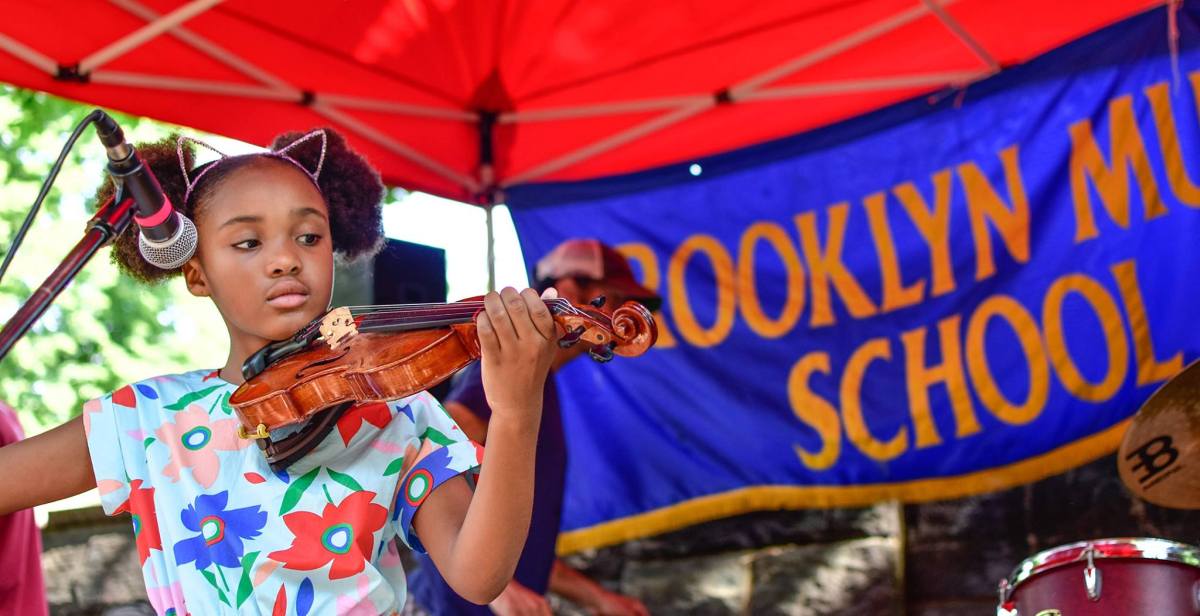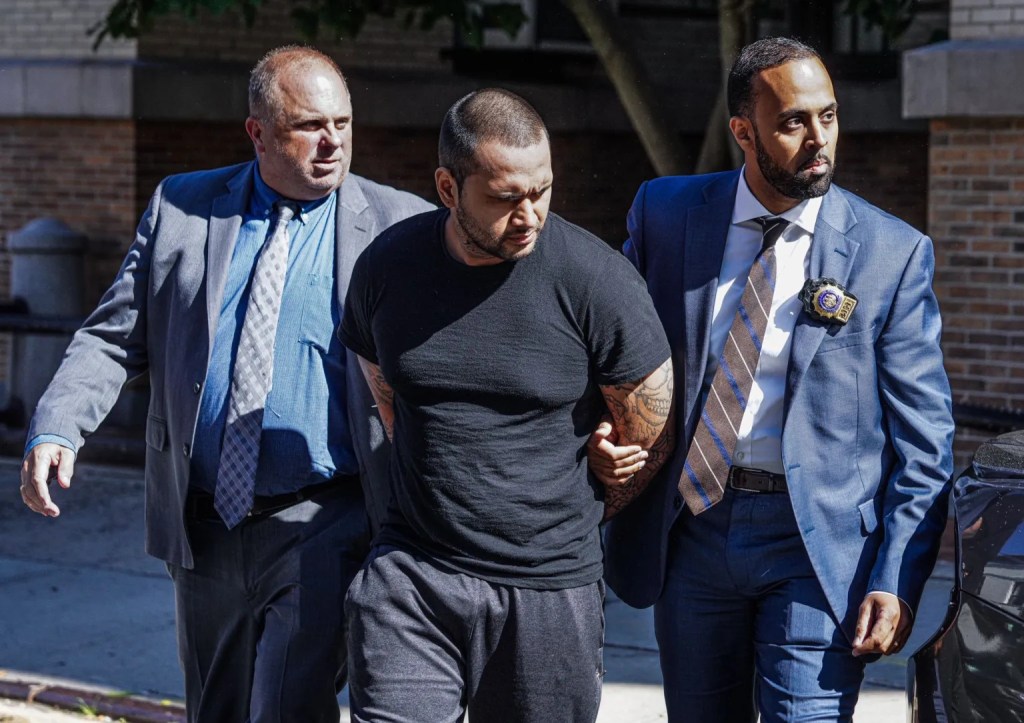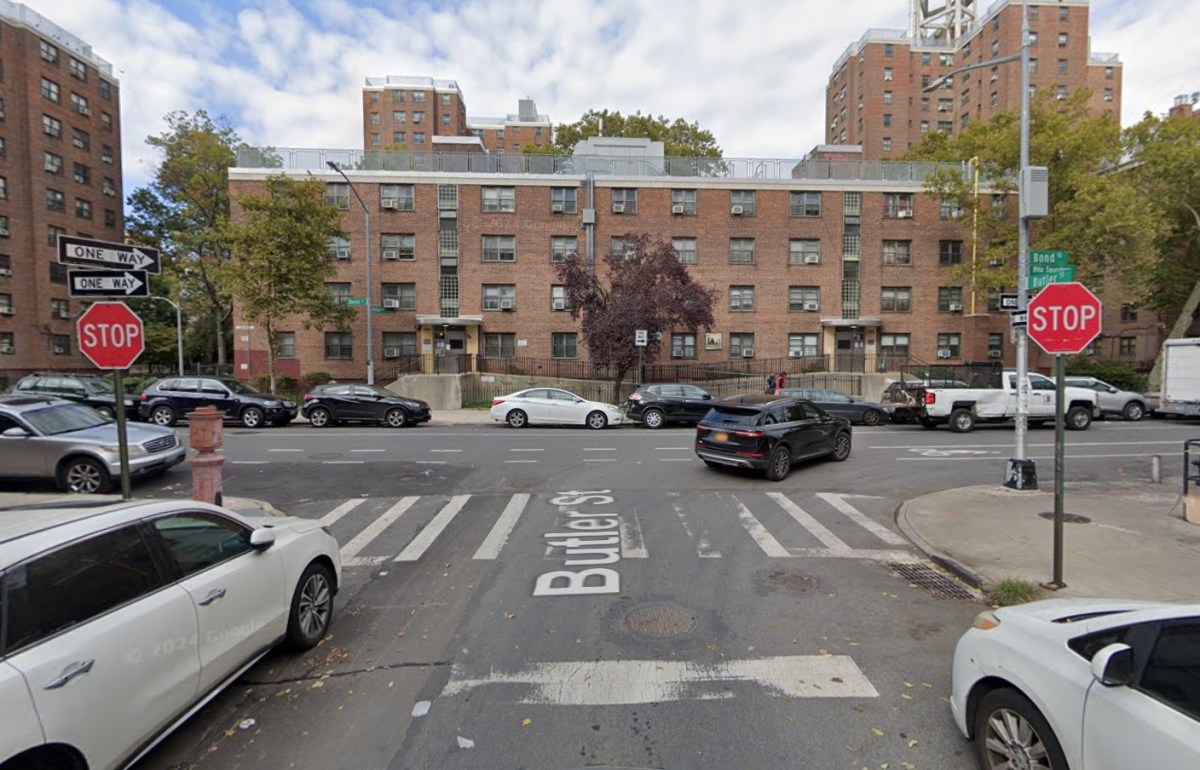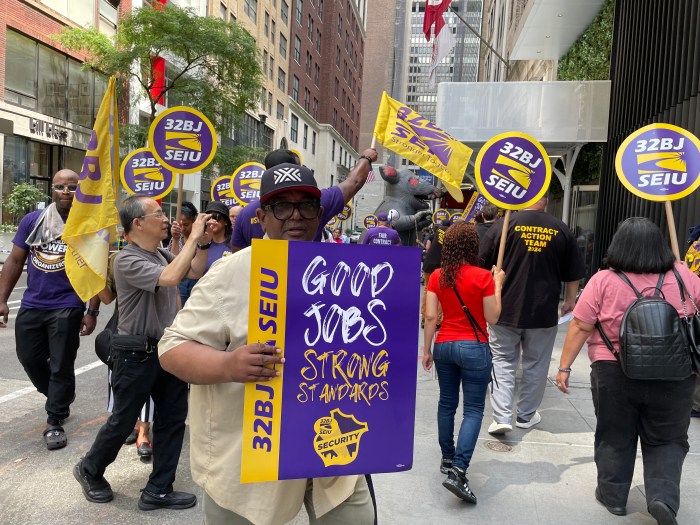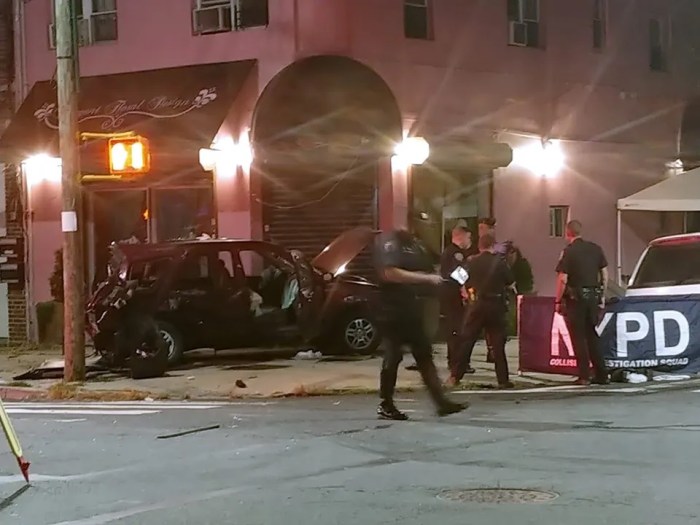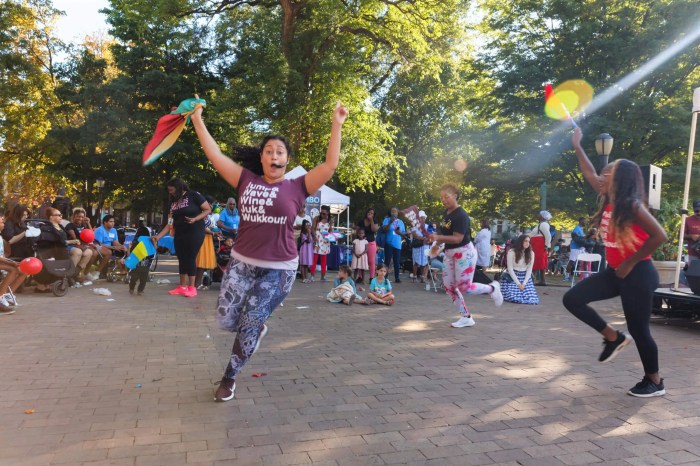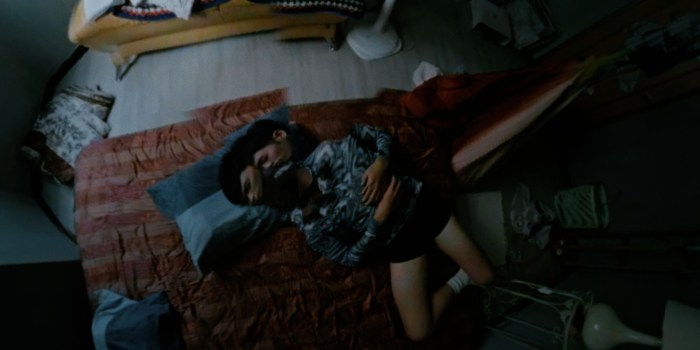By Lesley Sussman
The gray rage continued on Sunday as more than 200 senior citizens and others affected by cuts in the New York City Housing Authority budget braved the inclement weather to show up for the second time in two weeks on the steps of City Hall to protest NYCHA’s threatened closing of many senior citizen and community centers located in public housing.
The mid-afternoon press conference was organized by the United Neighborhood Houses and other social service agencies, despite the fact that last week a compromise was worked out between Mayor Bloomberg and City Council Speaker Christine Quinn that will restore $18 million to NYCHA’s 2009 budget.
The newly agreed upon $59 billion budget would increase funding not only to NYCHA above the levels originally proposed in the Mayor’s Executive Budget, but would also give an additional $129 million to the Department of Education.
At the press conference, however, a United Neighborhood Houses spokesperson called the new compromise a “bad budget.” In a press release issued later, U.N.H. — an umbrella organization for the city’s settlement houses — said that NYCHA’s funding crisis has jeopardized human services provided to public housing residents.
“If the city does not act, public housing residents may lose senior services, community centers, childcare programs and after-school activities,” the statement said.
The organization further called upon the city to restore full funding to all programs that help the poor and needy in the city’s housing projects and elsewhere.
Meanwhile, the Housing Authority conceded that, despite the new funding, some centers and programs may still have to be eliminated.
“The $18 million provided for NYCHA will allow us to partially maintain our network of youth and senior centers and community programs while we go through a process that will require difficult choices,” a NYCHA spokesperson said. “Over the coming months, NYCHA will continue to work with our stakeholders to ensure that essential services for public housing are maintained.”
Reaction to the new budget was cautious among social service agencies that operate programs in public housing.
“The situation still isn’t clear,” said Miriam Colon, senior services director of the Grand Street Settlement, which operates several programs for the poor in two Lower East Side public housing developments.
“Only $18 million was restored out of $30 million that was cut for the NYCHA budget,” she added. “So there’s still a $12 million cut. There still will be cuts in programs, and some senior centers may be closed.”
Colon also noted that the Department for the Aging, which oversees senior services throughout the city, has already received a 3 percent cut in its budget.
Colon said she was upset about the lack of information coming from the Housing Authority.
“We haven’t been hearing anything from them,” she said. “It’s not clear, out of that $18 million, what it’s going to be used for.
“Our seniors are still frightened because they don’t understand what’s going on. There’s so much happening at the same time. There’s still rumors that the senior centers they belong to and all the community centers will close.”
Councilmember Rosie Mendez, whose East Village/Lower East Side district contains the Grand Street Settlement, the Henry Street Settlement, The Meltzer Towers Senior Center and the Baruch Addition Senior Citizen Center, said she remains alarmed at the situation, despite the restoration of funds to NYCHA’s budget.
“It’s sort of like a mixed blessing,” the councilmember said. “Eighteen million [dollars] helps keep 75 community or senior centers open out of 280, but that amount is clearly not what the Housing Authority needed.”
Mendez said she was glad the City Council was able to save some of these centers.
“But,” she added, “I’m very alarmed about how we’re going to go about the closure of 200-plus centers.”
Also condemning the new budget was Assembly Speaker Sheldon Silver, who represents the Lower East Side and Lower Manhattan, who said the city wasn’t keeping its “promise” to make sure that the elderly and poor get all the services they need.
A Silver spokesperson said, “The speaker objects to cuts in the city budget for not-for-profits that provide important and much-needed services to seniors and other vulnerable people in the city.”
Seniors at one NYCHA building told The Villager the new budget compromise did not allay their fears that the center they attend would be closed.
At the Meltzer Towers Senior Citizen Center, 91 E. First St., Harry, a wheelchair-bound senior who declined to give his last name, said, “Talk is cheap. When I get an official notice from the New York City Housing Authority that this center won’t be closed, then I’ll believe it. I want to see it in black and white in my mailbox.”
Carlos, another Meltzer senior who also asked that his last name not be used, fully agreed with his friend.
“I don’t want to hear about any deals at City Hall,” he said. “It’s a lot of blah, blah, blah. First, they say the centers are going to be closed, and now they say they’re not. There’s a lot of rumors going around. I’ll wait and see.”
However, among the more youthful users of NYCHA-sponsored programs the reaction was a bit more positive. Julio Companos, 19, a regular at the graffiti-painted Pedro Albizu Campos Community Center, 611 E. 13th St., said he doesn’t read the newspapers much, but as long as the doors to the center stay open he is happy.
“All kinds of stuff goes on here,” he said, standing outside the center with a group of his friends. “It keeps me off the streets at night. There’s ping pong, and basketball, and pool tables.”
Companos pointed to a children’s garden outside the center where youngsters who attend the center had planted a variety of flowers and shrubbery.
“Even the kids get to do things here,” he said.







